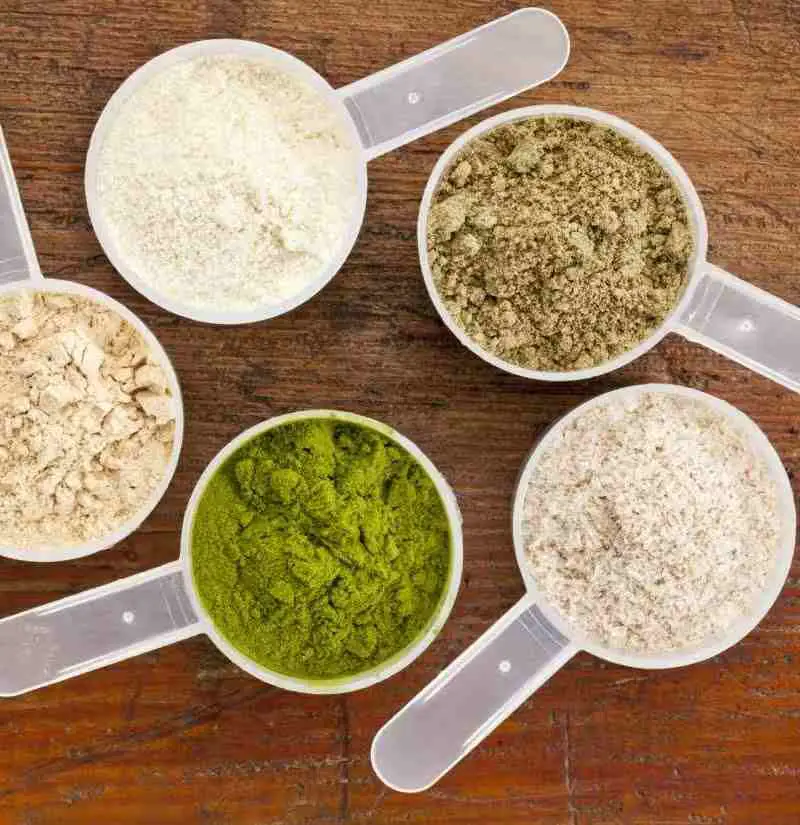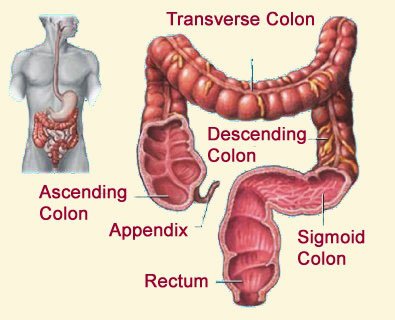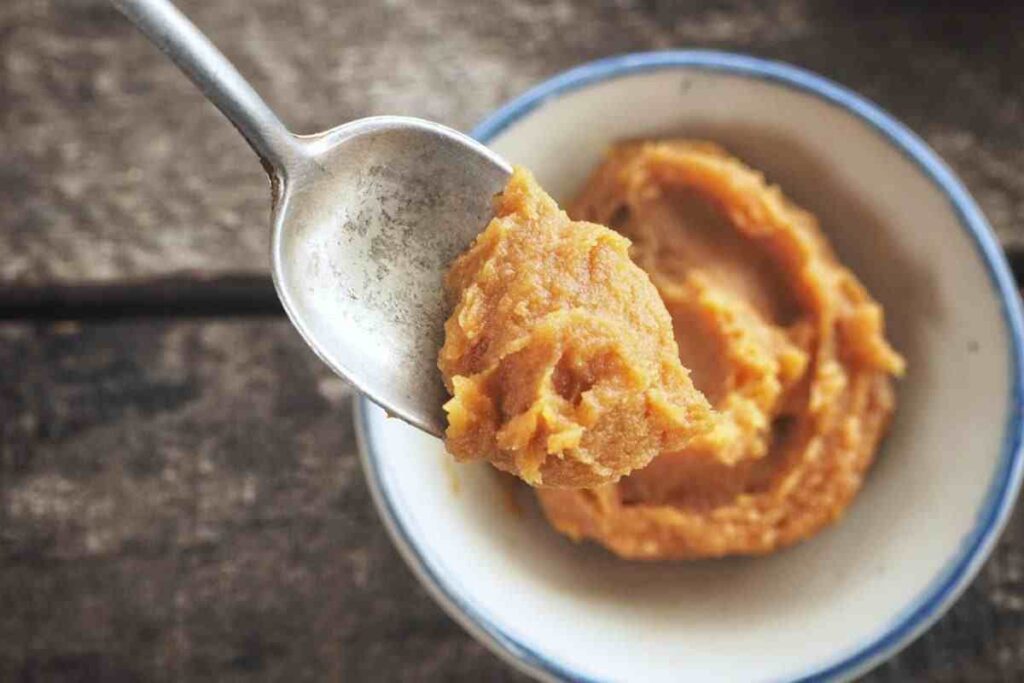Protein powders have become a staple in many fitness enthusiasts’ diets, offering a convenient and efficient way to meet daily protein needs. However, an unexpected side effect that some people experience is a change in their bowel movements, specifically, harder stools.
This article delves into the science behind why consuming protein powders might lead to constipation, exploring factors such as dehydration, excessive protein intake, certain ingredients and additives in protein powders, and lack of fiber. We’ll also discuss prevention strategies and remedies to help maintain a healthy digestive system while using protein supplements. So, if you’ve ever wondered, ‘Why does protein powder make it hard to poop?’, read on to uncover the answers.
Types of Protein Powders
There are many types of protein powders available on the market, each with different benefits and drawbacks. Some of the most common types are:

- Whey protein: This is a dairy-based protein that is quickly absorbed and contains all nine essential amino acids. It is ideal for post-workout recovery and muscle growth.
- Casein protein: This is another dairy-based protein that is slowly digested and provides a steady release of amino acids. It is good for preventing muscle breakdown and promoting satiety.
- Soy protein: This is a plant-based protein that also contains all nine essential amino acids. It is suitable for vegans and vegetarians and may have some health benefits such as lowering cholesterol and improving bone health.
- Pea protein: This is a plant-based protein that is high in branched-chain amino acids (BCAAs), which are important for muscle growth and repair. It is also hypoallergenic and easy to digest.
- Rice protein: This is a plant-based protein that is low in fat and cholesterol and has a mild flavor. It is often combined with other plant proteins to increase the amino acid profile.
- Hemp protein: This is a plant-based protein that is rich in omega-3 and omega-6 fatty acids, fiber, and antioxidants. It may support immune system function and cardiovascular health.
- Egg white protein: This is an animal-based protein that is high in protein and low in fat and carbs. It is easily absorbed and has a high biological value, meaning it is well utilized by the body.
The best type of protein powder for you depends on your goals, preferences, dietary restrictions, and budget. You may want to experiment with different types and flavors to find the one that works best for you.
Benefits of Protein Powder
Protein powder offers several benefits, making it a popular supplement in the fitness and health community. Some key advantages include:

- Muscle Building: Protein is essential for muscle repair and growth, making protein powder an excellent resource for individuals engaged in strength training or resistance exercises.
- Convenience: Protein powder provides a quick and convenient way to meet daily protein requirements, especially for those with busy lifestyles who may struggle to consume sufficient protein through whole foods alone.
- Weight Management: Protein is known to promote satiety, helping to control appetite and support weight management goals by reducing overall calorie intake.
- Nutrient Density: Protein powders often offer a concentrated source of high-quality protein with minimal added fats and carbohydrates, making them an efficient way to boost protein intake without excess calories.
- Post-Workout Recovery: Consuming protein powder after exercise can aid in the recovery process by supplying the necessary amino acids for muscle repair and minimizing muscle soreness.
- Versatility: Protein powder can be easily incorporated into various recipes, such as smoothies, oatmeal, or baked goods, adding a protein boost to a wide range of meals.
While protein powder has these advantages, it’s crucial to consider individual dietary needs and potential digestive implications, as some individuals may experience difficulties with bowel movements when relying heavily on protein supplements.
Why does Protein Powder Make it Hard to Poop?
Protein powder itself is not necessarily the cause of constipation, but certain factors related to its consumption may contribute to difficulties with bowel movements in some individuals. Here are a few reasons why protein powder might be associated with constipation:

- Dehydration: Protein powders, especially those with high amounts of protein, can absorb a lot of water. This absorption can slow down the process of digestion. When your body is dehydrated, it tries to conserve water by removing it from other areas, including your digestive system. As a result, your stools can become hard and dry, making them difficult to pass.
- Excessive Protein Intake: Our bodies can only utilize a certain amount of protein at a time. Consuming more protein powder than your body can use can lead to harder stools. The excess protein that your body can’t absorb can end up in your colon, where it’s broken down by bacteria, a process that can lead to harder stools.
- Ingredients in Protein Powders: Some protein powders contain ingredients that can contribute to harder stools. These include whey protein isolate, casein, and soy protein. These proteins are harder for your body to break down and digest, which can slow down your digestion and lead to harder stools.
- Additives in Protein Powders: Many protein powders contain additives and artificial sweeteners, which can cause various gastrointestinal side effects. These can include bloating, constipation, diarrhea, gas, and stomach pain. These additives can disrupt the balance of bacteria in your gut, slowing down digestion and leading to harder stools.
- Lack of Fiber: Most protein powders do not contain any fiber. Fiber adds bulk to your stool and helps it move through your digestive system more easily. Without enough fiber in your diet, your stools can become hard and difficult to pass.
How do You Avoid Constipation When Taking Protein Shakes?
Here are some tips for avoiding digestive issues when consuming protein powder:
- Stay Hydrated: Adequate hydration is essential for maintaining healthy digestion. Ensure you drink enough water throughout the day, especially when consuming protein powder.
- Gradual Introduction: If you’re new to protein powder, start with smaller amounts and gradually increase the dosage to allow your digestive system to adapt.
- Choose High-Fiber Varieties: Opt for protein powders that contain added fiber or choose whole food sources rich in fiber to support regular bowel movements.
- Balanced Diet: Don’t rely solely on protein powder for your nutritional needs. Include a variety of whole foods in your diet to ensure a balanced intake of macronutrients and micronutrients.
- Include Whole Foods: Supplement protein powder with whole food sources of protein such as lean meats, dairy, legumes, and plant-based protein sources to provide a broader spectrum of nutrients.
- Check for Allergens: Be aware of any allergies or sensitivities you may have to ingredients in the protein powder. Choose products that are free from allergens that may cause digestive discomfort.
- Digestive Enzymes: Consider choosing protein powders that contain added digestive enzymes, as these can aid in the breakdown and absorption of nutrients.
- Monitor Sugar and Artificial Additives: Some protein powders may contain high levels of added sugars or artificial additives, which can contribute to digestive issues. Opt for products with minimal added sugars and natural ingredients.
- Time Your Consumption: Pay attention to when you consume protein powder. Some individuals may find it helpful to have it with meals, while others prefer it as a snack. Experiment and find what works best for your digestive system.
- Regular Exercise: Regular physical activity can help stimulate the muscles in your intestines, helping to move your stools through your digestive system.
- Probiotics: Consider incorporating probiotic-rich foods or supplements into your diet to promote a healthy gut microbiome, which can positively impact digestion.
- Consult a Professional: If you experience persistent digestive issues, consult with a healthcare professional or a registered dietitian. They can provide personalized advice based on your specific health needs.
Remember that individual responses to protein powders vary, and what works for one person may not work for another. It’s essential to pay attention to your body’s signals and make adjustments accordingly. If digestive issues persist, seeking professional advice is advisable.
Whole Food Alternatives
Numerous whole food alternatives can provide you with a good source of protein. Here are some of them:

- Seitan: Also known as wheat meat or wheat gluten, it contains about 25 grams of protein per 3.5 ounces.
- Tofu, Tempeh, and Edamame: All originate from soybeans, which are considered a whole source of protein. They contain iron, calcium, and 12–20 g of protein per 3.5 oz.
- Natural Peanut Butter: A two-tablespoon serving of this creamy nut butter provides 8 grams of protein.
- Eggs: One large egg contains 6 grams of protein.
- Edamame: This tasty, bright green bean is an amazing source of plant-based protein. One cup (155 grams) provides an impressive 17 grams of protein.
- Chickpeas: Also known as garbanzo beans, chickpeas can be consumed in various forms such as hummus or falafel. A cup of cooked chickpeas has about 15 grams of protein.
- Nuts and Seeds: Almonds, peanuts, sunflower seeds, flax seeds, sesame seeds, and chia seeds are all good sources of protein.
- Spirulina: This blue-green algae is a protein-rich food and provides a number of nutritional benefits. Two tablespoons provide about 8 grams of protein.
Including a diverse range of these whole food alternatives in your diet can provide the necessary protein without the potential digestive issues associated with some protein powders. It’s crucial to maintain a balanced and varied diet for optimal health.
FAQs
Q. What are the signs of protein powder causing constipation?
Consuming protein powder without enough fiber can lead to constipation. Symptoms may include fewer than three bowel movements a week, hard and difficult-to-pass stool, bloating, and stomach pain.
Q. How long does it take for protein powder to cause constipation?
The onset of constipation due to protein powder can vary and is not specified in the sources. However, a protein that is broken down slowly in the gut can potentially cause constipation.
Q. Does the type of protein in the powder (whey, soy, casein, etc.) affect digestion differently?
Different types of protein may be digested at different rates. For example, whey protein is quickly absorbed, making it a popular choice for post-workout recovery, while casein takes longer to digest.
Q. How can I tell if I’m consuming too much protein?
Overconsumption of protein can cause symptoms such as intestinal discomfort, dehydration, nausea, fatigue, headaches, and more.
Q. Are there any specific groups of people (like athletes or elderly) who are more likely to experience constipation from protein powder?
Certain demographic groups, such as women and the elderly, are more prone to constipation. However, no specific groups are mentioned in relation to protein powder-induced constipation.
Q. Does cooking or baking with protein powder change its effects on digestion?
Cooking with protein powder does not destroy it, but it could denature it, changing the structure of the protein. This does not affect its nutritional value, but it might change how quickly it is digested.
Q. When should I seek medical advice if I have constipation from protein powder?
You should seek medical advice if you have not had a bowel movement in 3 days, are bloated or have pain in your stomach, have nausea or vomit, or have blood in your stool.
Conclusion
In conclusion, while protein powders are a convenient way to increase your protein intake, they can sometimes lead to digestive issues such as constipation. This can be due to factors like dehydration, excessive protein intake, certain ingredients in protein powders, lack of fiber, and more.
However, by staying hydrated, moderating protein intake, choosing the right protein powder, increasing fiber intake, and exercising regularly, you can help prevent these issues. Remember, everyone’s body is different, and what works for one person may not work for another. Always listen to your body and consult with a healthcare professional or dietitian before making any major changes to your diet.

Good day, and welcome to Fitthour. My name is Shubham Vijay, and I am a certified personal trainer and nutrition coach with 6 years of experience in the fitness industry. At Fitthour, we specialize in types of training, such as strength training, cardio, or HIIT, and our mission is to help clients achieve their fitness goals and improve their overall health.




